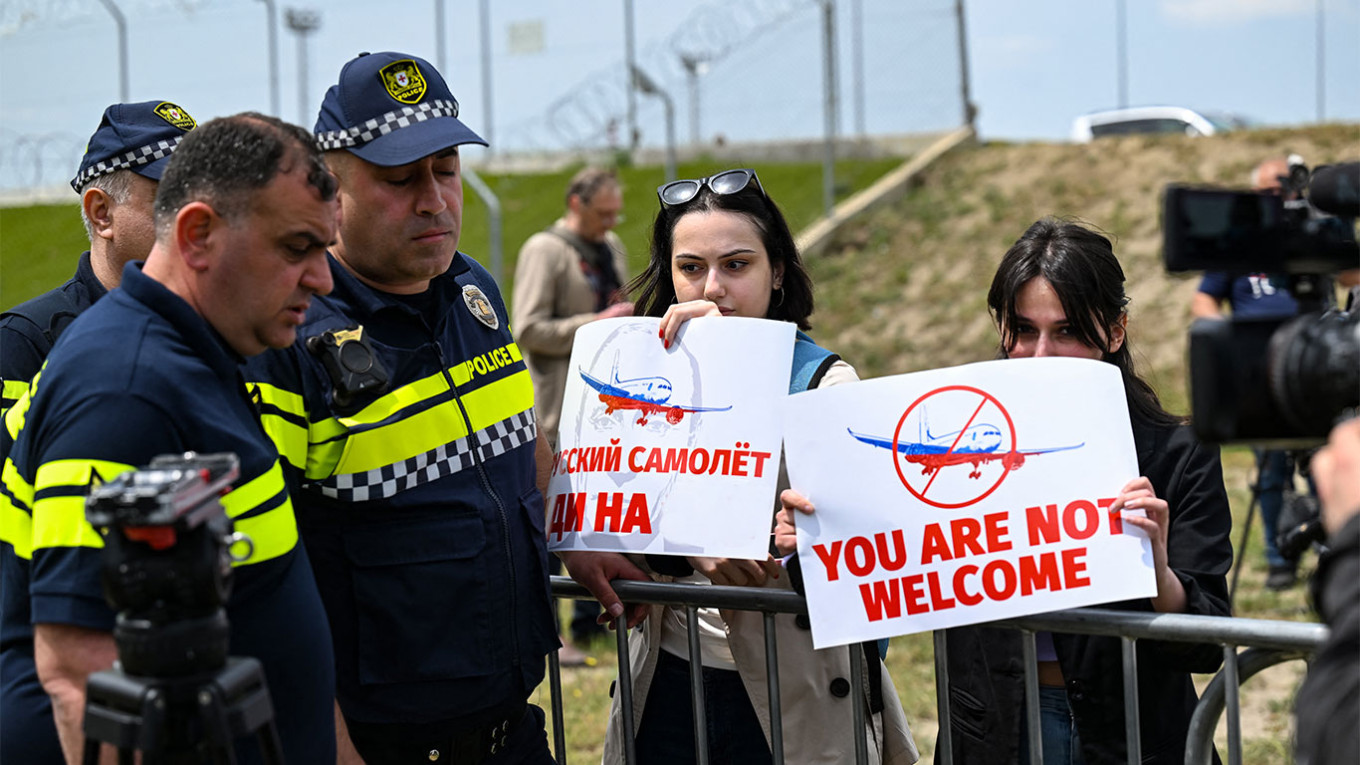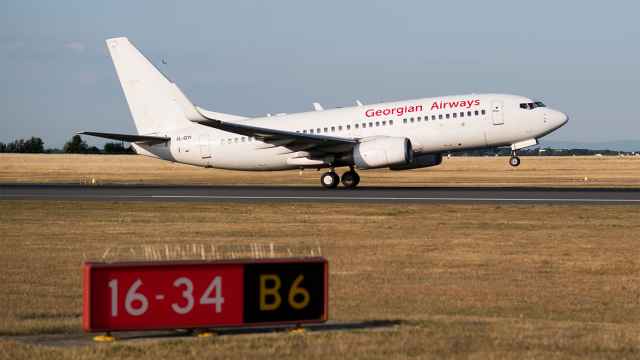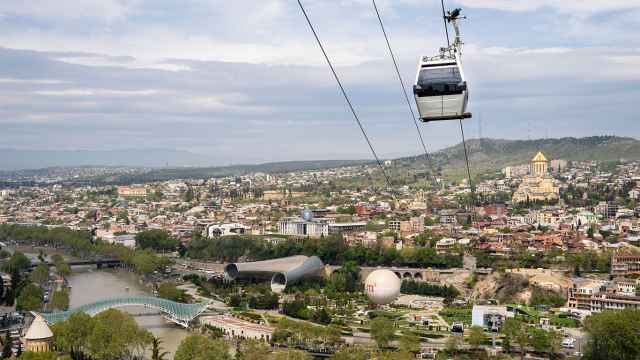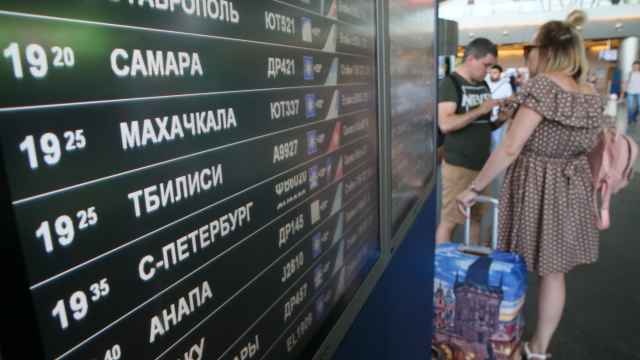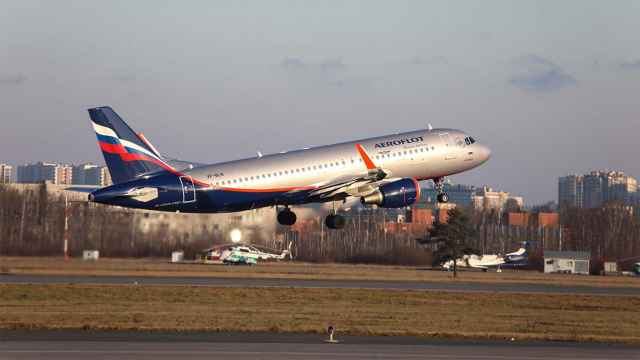The first direct flight from Russia landed in the Georgian capital of Tbilisi on Friday four years after Moscow banned air travel with the South Caucasus nation.
The flight was met with protests against Georgia’s perceived return to the Russian sphere of influence amid its war in Ukraine.
“Russian plane, go f*ck yourself,” read a large placard held outside Tbilisi International Airport, a reference to the now-famous phrase said by a Ukrainian soldier to an invading Russian warship last year.
Footage shared by the exiled Russian broadcaster Dozhd showed protesters carrying Georgian and Ukrainian flags, as well as signs condemning “occupant” and “terrorist” Russia.
Tbilisi-based journalists reported detentions at the protest site.
The southern Russia-based Azimut Airline flight landed in Tbilisi less than 10 days after Russian President Vladimir Putin lifted a flight ban and visa regime with Georgia.
Moscow had banned air travel with Georgia in 2019 following anti-Russian rallies in Tbilisi.
In 2008, the countries fought a brief but bloody war that resulted in an ongoing Russian military presence in 20% of Georgian territory.
The South Caucasus country has been a major destination for Russians fleeing political repression and mobilization in the months following the February 2022 invasion of Ukraine.
Friday’s flight aboard the Russian-made Sukhoi Superjet 100 was said to have carried around 70 people.
Georgian police closed the arrivals hall and sealed off the entire Tbilisi International Airport, according to Dozhd.
Georgian journalists were seen asking the flight’s passengers for their purpose of visit and whether they recognized Russia’s occupation of Georgia's breakaway statelets in an exchange some Russian media decried as an “attack.”
Georgia's ceremonial pro-Western President Salome Zurabishvili called the Russian flight’s arrival “unwelcome.”
The country's prime minister and government, who hold executive power in the parliamentary republic, have been accused of forging closer ties with the Kremlin in recent years.
Georgian NGOs said the restoration of Moscow-Tbilisi flights was “direct sabotage” of the country’s status as a candidate for European Union membership.
Georgia’s civil aviation authority meanwhile said direct flights between southern Russia’s Sochi and Tbilisi, as well as between Moscow and the Georgian city of Kutaisi, are expected to start in June.
A Message from The Moscow Times:
Dear readers,
We are facing unprecedented challenges. Russia's Prosecutor General's Office has designated The Moscow Times as an "undesirable" organization, criminalizing our work and putting our staff at risk of prosecution. This follows our earlier unjust labeling as a "foreign agent."
These actions are direct attempts to silence independent journalism in Russia. The authorities claim our work "discredits the decisions of the Russian leadership." We see things differently: we strive to provide accurate, unbiased reporting on Russia.
We, the journalists of The Moscow Times, refuse to be silenced. But to continue our work, we need your help.
Your support, no matter how small, makes a world of difference. If you can, please support us monthly starting from just $2. It's quick to set up, and every contribution makes a significant impact.
By supporting The Moscow Times, you're defending open, independent journalism in the face of repression. Thank you for standing with us.
Remind me later.


